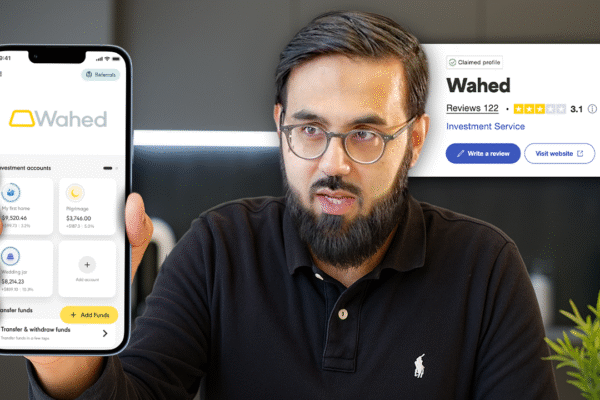
Is StrideUp The Best Islamic Mortgage Provider In The UK? (2025 Review)
05 September 2025 11 min read


Ibrahim Khan
Co-founder
7 min read
Last updated on:
Over the past five years or so, shared equity schemes – both governmental and private – have sprung up all over the UK (and the rest of the world). As Western Muslims currently face the unappetising choice between relatively expensive Islamic mortgages (in countries where they exist) on the one hand, or going for a straightforwardly haram conventional mortgage on the other, shared equity schemes are a promising alternative.
However, there are a number of key factors, from an Islamic perspective, to bear in mind when thinking about these schemes.
But first, what do we actually mean by ‘shared equity schemes’?
In a nutshell, shared equity schemes are a structure through which you, the homebuyer, will buy a percentage (let’s say 25%) of the house, and the government/scheme provider will own the other 75%. You pay rent on the 75% and slowly buy the 75% as well.
There are a number of variants of these schemes, and I am simplifying hugely with the above example. However, I will mention a significant variant: the equity loan scheme that the Share-To-Buy Government programme offer (https://www.sharetobuy.com/help-to-buy), as this is a very large version of the scheme many people will encounter. In this, the Government give a loan of a certain amount to the homebuyer to help fund the deposit. The homebuyer then has to pay back that £x. For 5 years there is no interest charged on that £x, but after that interest is charged.
There are a number of government-backed schemes all over the UK that vary in their terms. Many schemes outside of London aim to regenerate a shabby area of a town or city and are fairly affordable, and often you can get hold of some (or negotiate with them) to not have to take out an interest-bearing mortgage for your deposit. However, in London, it is almost certain that you will have to take out a mortgage just to pay 25% of the value of the house. (However, there may be an option even here – more on this below)
However, we are seeing an increase in offerings of private, for-profit, shared equity schemes that are not in collaboration with the Government. They are not necessarily marketed at the Muslim audience per se, however what they are offering is entirely Islamic. One example is Strideup (who now officially offer islamic mortgages via their HPP product) and I would be interested to hear of other equivalents out there. What companies like this do is match up investors (in this case, lay people, not institutions) with people who want to buy a house. So Fareed wants to buy a house and has money for a 25% deposit. Strideup will help Fareed by arranging for the 75% to be bought by investors. More about these companies in the next section looking at the pros and cons.
Shared equity schemes are principally equity-based transaction at heart and this is entirely Islamic. Many of them are actually purer forms of the versions Islamic banks offer. The rent they charge is pegged to market rates as opposed to LIBOR (though, as I have explained in previous blogs on Islamic mortgages, pegging to LIBOR is not actually that big a deal), many of the schemes share the burden of buying the property and insuring it, whereas an Islamic bank will not, and one can get access to high quality accommodation at a fraction of the up-front payment.
Further, some schemes don’t even ask you to buy the rest of the house off them. So as a cheap way of getting access to a house it is great, and your outgoing doesn’t take a big hit either.
Finally, as mentioned above, there is a degree of governmental support involved on the Government-backed shared equity schemes, and as such, the property can be cheaper/easier to buy overall than otherwise.
With the Strideup-type companies, one gets the benefit of being in a purely Islamic contract, sharing in the costs (e.g. insurance, repairs) with the other co-owners, and knowing that at the point of sale, investors will share in the risk/reward of the house price going up/down.
Islamic banks do not currently offer mortgages on shared equity schemes. The precise reasons are unknown to me, but I speculate that it is likely to do with the house not being in the name of the bank and so the legal structure deployed by the Islamic banks would not work.
This means that if you live in an area with high house prices, you can’t really go for a mortgage to pay the 25% using a deposit – other than saving the amount up in cash.
In a nutshell, if you’re paying an interest fee, then this is problematic. However there are certain schemes where the interest is in line with inflation or nominal for the first five years. Any equity loan where the interest is pegged to inflation would be Islamically acceptable to many scholars (e.g. a rate of around 1-2% currently – and where the wording in the contract stipulates that the rate varies according to an inflation measure e.g. CPI). An equity loan that is nominal for the first five years – is still interest and so not allowed. However if you could negotiate with the provider to change the wording to “charges” or “fees” for the first five years, and you are confident you can pay back the equity loan within the first five years, then this is likely okay (though I accept there are other views on this matter and would be happy to discuss this further in the comments below). My reasoning is that this is identical to the credit card situation where you pay your balance in full every month, and credit cards are widely accepted by scholars to be acceptable to use in this manner.
The reason why it is okay to change “charges” to “fees” and say that is Shariah-Compliant, is that a lot of the time the “charge” here is arbitrary and not in any way interest-based. It is simply worded that way as contract law/solicitors who write contracts are programmed to use “interest” (again happy to debate below).
There may also be the potential to liaise with the following organisations in an effort to get the government to provide a Shariah compliant alternative to the equity loan:
– http://www.financingshariaenterprise.co.uk/
– https://www.startuploans.co.uk/sharia-compliant-finance/
Both of these organisations are the Shariah-compliant arms of the Start Up Loans scheme the Government launched a few years back. While this isn’t the same scheme as the Help-to-Buy and Share-to-Buy schemes, these companies may be able to help in providing the necessary contacts within the relevant departments in order to set up something equivalent for the house purchase schemes. Clearly the British Business Bank (the Government-owned bank that sponsors the start-up loans) has Shariah-compliant finance experience, and so this avenue should be explored further.
Even if nothing comes of it, you’d be doing a service to the Muslim community by confirming either way.
The thing with the new private shared-equity schemes is that as they are such a fledgling industry, they cannot yet compete with Islamic banks (and certainly not conventional mortgage providers see this previous IFG article making a similar argument for Islamic banks) on rates. They work at market rate rents – and so they vary from place to place, but will usually hover around 4-4.5% of the value of the house. However, usually, in the long run, the mortgage provider – Islamic or conventional – can beat them on price.
These companies also have to have exit strategies to allow investors to take profit. That could be a problem for you if you buy a house and then in 5 years’ time you have to sell up if the company cannot source other investors to replace the ones exiting. Of course you wouldn’t make a loss or have a rushed sale – as investors would also lose out then – but still, if you are buying a house for the long-term, this uncertainty might be something you don’t want to live with.
Fundamental to your approach to shared equity schemes is really doing your homework and finding out the precise structure, who owns what, and pays what, when. Then if there are any issues, do not be afraid to negotiate with the scheme/government/company to amend bits and pieces to make it Islamically compatible.
However, when done well, shared equity schemes really can be an affordable and Shariah-compliant step onto the property ladder.
Good luck – and let me know your own experiences. With the right structures and processes in place, shared equity schemes could not only be a viable Islamic mortgage alternative, but also a really good way for young people to get on to the property ladder.

05 September 2025 11 min read

24 July 2025 15 min read
Leave a Reply